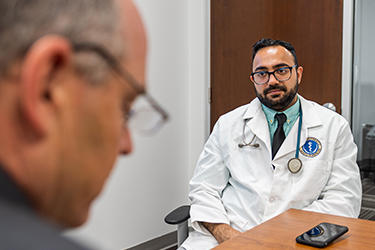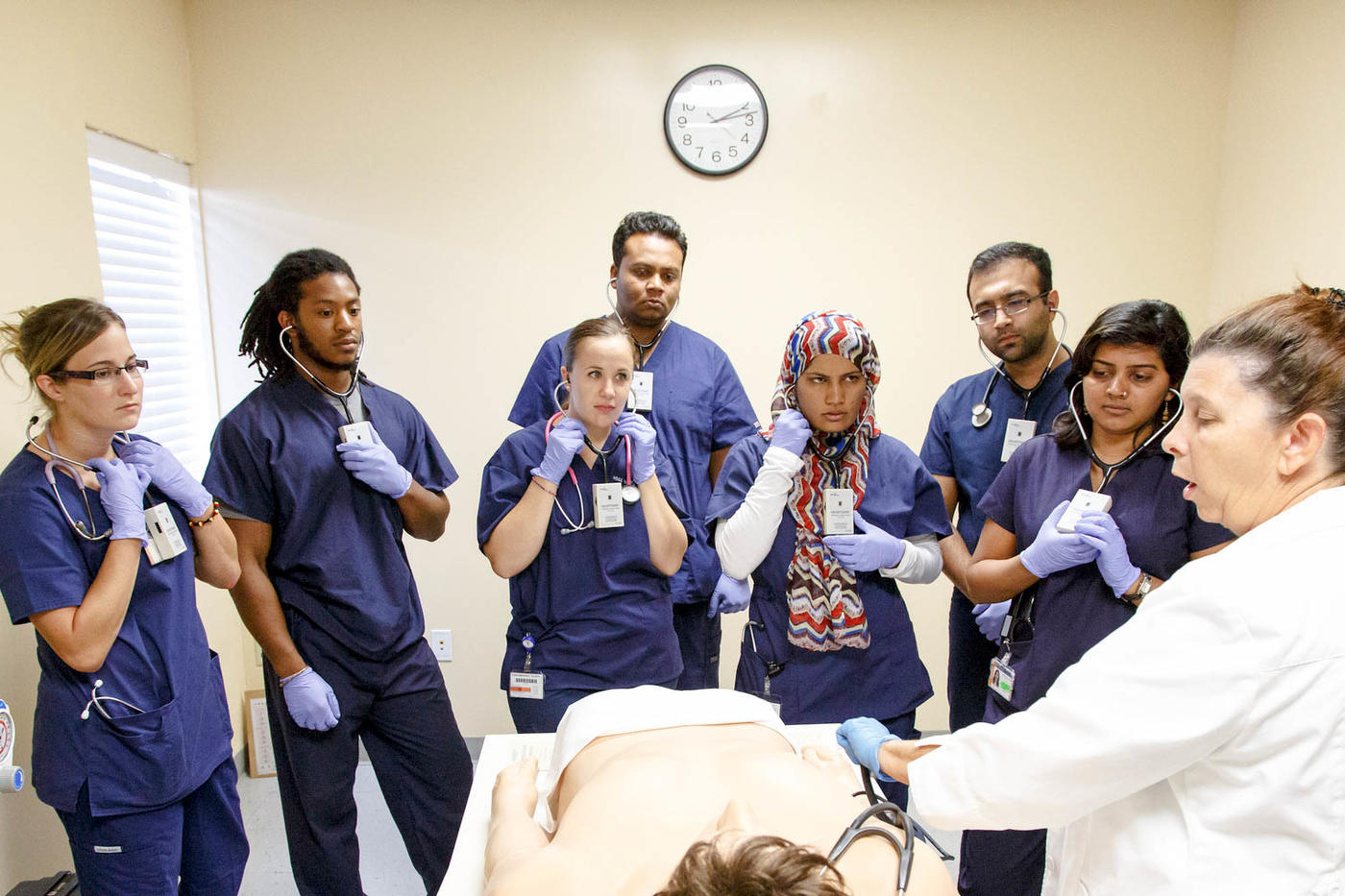Academic Resources & Student Support
The path through medical school is both exciting and challenging—which is why it’s important to have a village behind you. Even before your medical school journey begins, you’ll find a rich network of academic support resources at Ross Med.
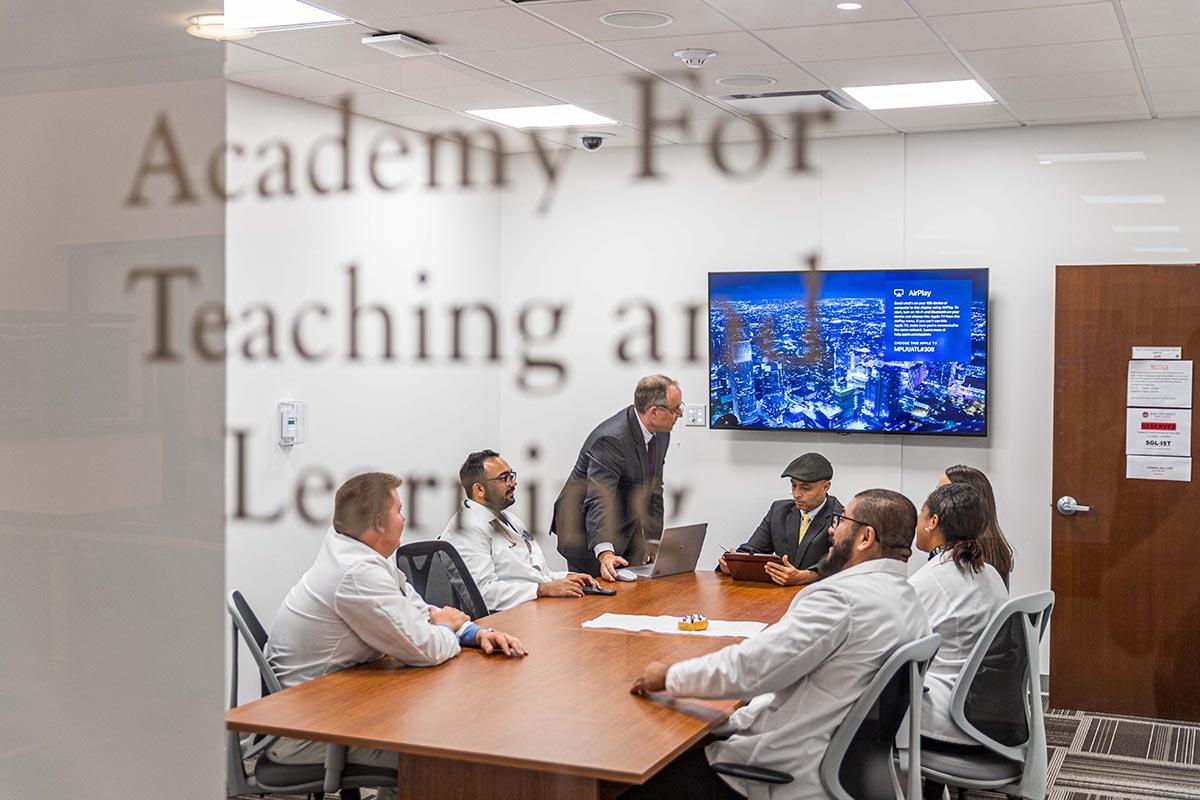
Our Resources are a Click Away
Even before your medical school journey begins, you’ll find a rich network of academic support resources at Ross Med.
Your Personal Advising Team
Our Office of the Academic Learning Environment (ALE) coordinates a variety of academic supports that will enhance your journey to becoming a successful physician.
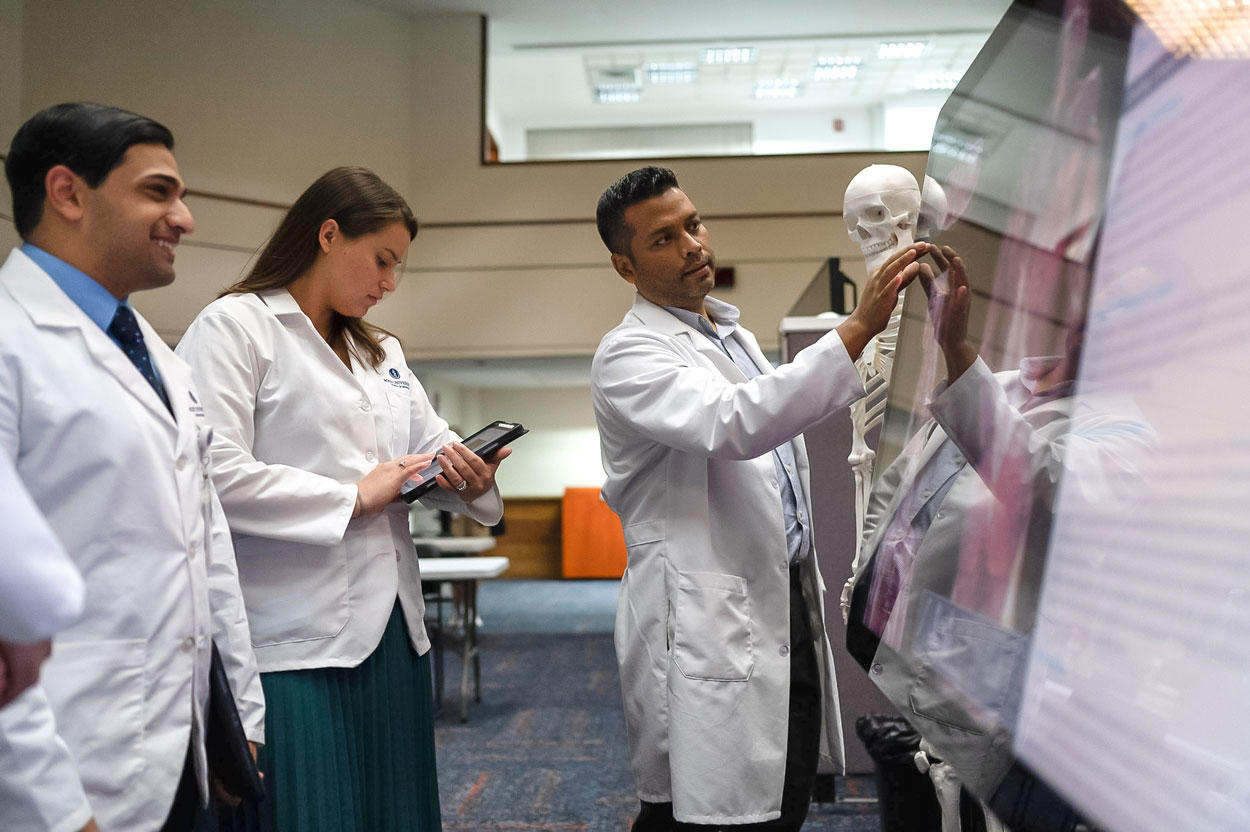
Faculty Mentoring from the Start
As a Ross Med student, you will regularly meet with faculty advisers to identify your strengths and plan your path through medical school. Together, you and your faculty mentors will develop individualized study plans for coursework and exams.
And as you move through your clinical education curriculum, Ross Med’s clinical faculty, the academic dean, and core specialty clinical chairs will provide you with a wellspring of knowledge and guidance on career development, attaining residency, and patient care.
Academy for Teaching and Learning
Ross Med’s Academy for Teaching and Learning (ATL) is a strategic network of faculty who help integrate academic support throughout our four-year curriculum. From our pre-matriculation course to exam prep and beyond, your journey through Ross Med will include intentional touchpoints at critical moments, ensuring that you have the resources you need to unleash your full potential.
Pre-Matriculation Course
Before beginning your MD coursework, enrolling in our pre-matriculation course can provide you with the tools to successfully transition into a rigorous medical curriculum. This course is particularly beneficial for students who have been out of school for an extended period or pursued other career paths before entering our program.
Personalized Advising
Work with faculty to create a learning plan tailored to your unique preferences and aptitudes. Throughout your time as a student, ATL faculty will monitor your progress and provide proactive outreach when you need it.
Group Study Sessions and Tutoring
ATL faculty host a range of large and small group sessions to complement the medical science curriculum. These include multidisciplinary boot camps, organ-system-based formative assessments before exams, concept clarification sessions after exams, peer tutoring, United States Medical Licensing Examination® (USLME®) Step Exam preparation, and remediation courses.
Preparation for National Medical Board Exams
As a Ross Med student, you will automatically be enrolled in our Pathways to Step 1 course, which includes personalized advising and tutoring sessions as well as group reviews of USMLE® practice questions to help you prepare for the Comprehensive Basic Science Exam and USMLE® Step 1.
As you complete your core and elective clinical rotations, you can continue to tap into the ATL’s support through individual advising, NBME practice exams, webinars, and more.
Start Your MD Journey Today
Dedicated Learning Communities
Beginning on day one, you are welcomed into a dedicated Learning Community to support you throughout your medical school experience. Your community is a blend of caring faculty mentors, peer supporters, academic advisors, and wellness counselors, all united with one goal in mind—your success.
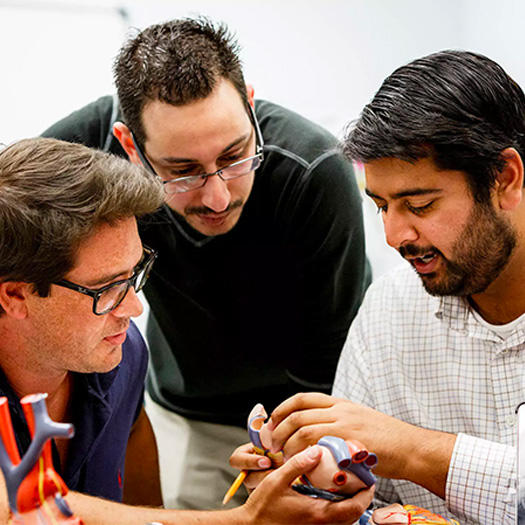
Medical Education Readiness Program (MERP)
The Medical Education Readiness Program (MERP) is a 15-week online medical school preparatory program focused on preparing aspiring medical students for success in medical school. MERP is offered to students granted conditional acceptance to Ross University School of Medicine.
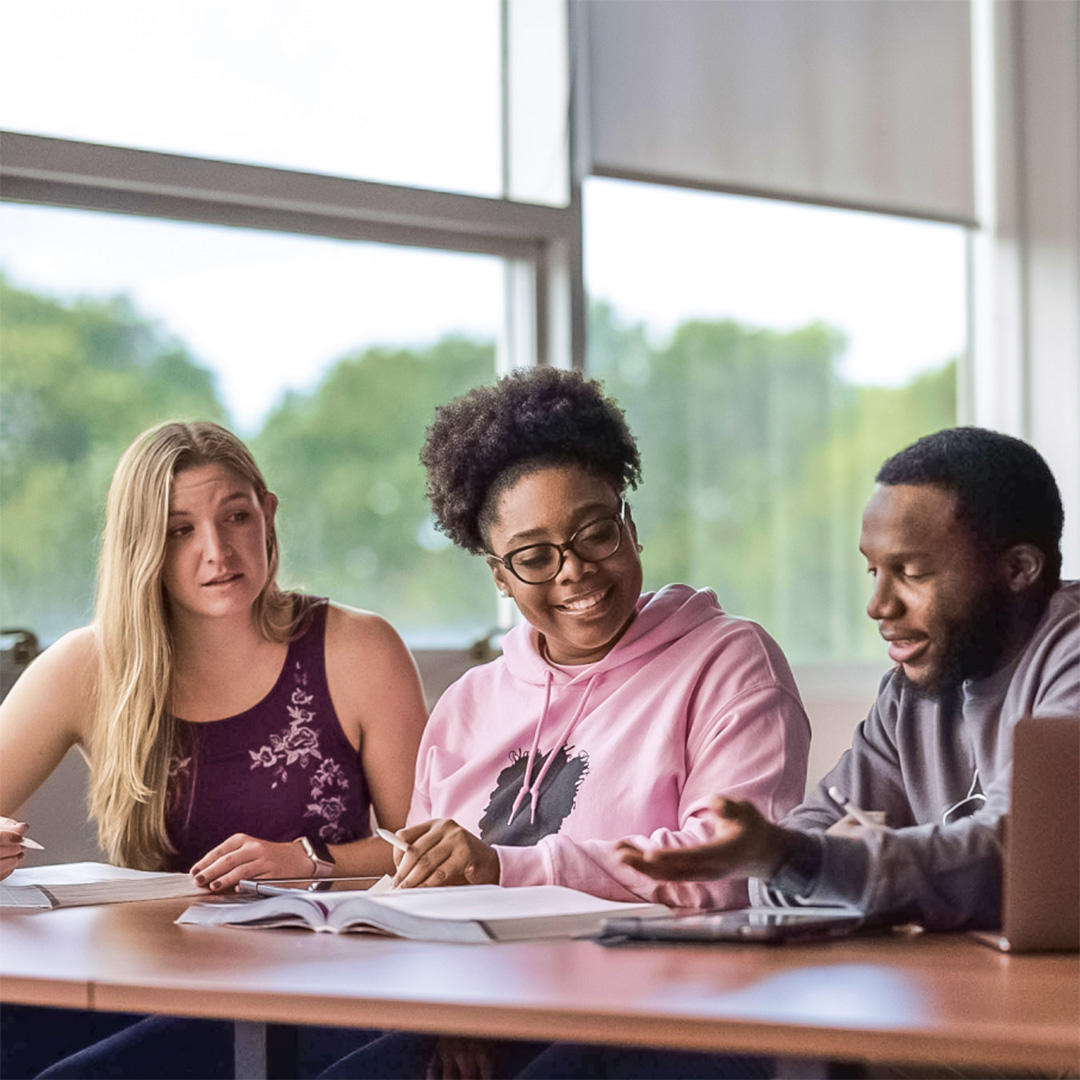
Library Services and Research Support
Need some inspiration for your next research paper?
Ross Med’s Library Services offer valuable academic resources, eBooks, and medical journals—and you’ll have full access throughout the entirety of your MD program. Plus, you can tap into additional library programming like live learning sessions, on-demand videos and instructional guides, and research databases and learn about recent accomplishments of Ross Med faculty, students, and alumni.
Holistic Support for the Whole Journey
At Ross Med, you’ll find a network of support that goes deeper than academics alone—because we believe that caring for the whole student helps us create a healthy, compassionate, and diverse future for the healthcare profession. We are dedicated to empowering you with the tools and support you need to not only excel academically, but also thrive physically and mentally on your path to becoming a physician.
From individual counseling to wellness workshops and activities, find resources to support your health and wellbeing through our Wellness and Counseling Center. Our licensed wellness team is equipped to address the unique challenges faced by today’s medical students—including burnout, compassion fatigue, stress management, test anxiety, and more.
Becoming an exceptional physician means investing in your personal and professional development long-term. Find guidance and leadership opportunities to help you advance in your chosen career.

Community Engagement
At Ross Med, you have a community of support behind you. Through learning communities, student organizations, and community service, you’ll forge deep and meaningful connections to carry with you.
Our student organizations host an array or enriching events and activities every semester designed to engage with the student and Barbados community. We invite you to partake in these wonderful opportunities to engage both with your fellow students and the beautiful Barbados community.
Student Activities Include:
- Group cultural heritage site visits: Immerse yourself in the rich history of Barbados through its fascinating historical sites.
- Community health days: Join in making a positive impact on the local community through meaningful outreach and promoting a healthier future for everyone,
- Beach cleanups: Experience the joy of giving back to the environment and preserving the natural beauty of Barbados.
- Intramural sports: Unleash your competitive spirit and have fun engaging in friendly sporting competitions.
Ross Med Community
Show your Ross Med pride! Visit the Merchandise Store to let your Ross Med colors shine.
Get in contact with our team who will answer any and all of your questions about your next career.
Ready to join the Ross Med community? Start your application today!

